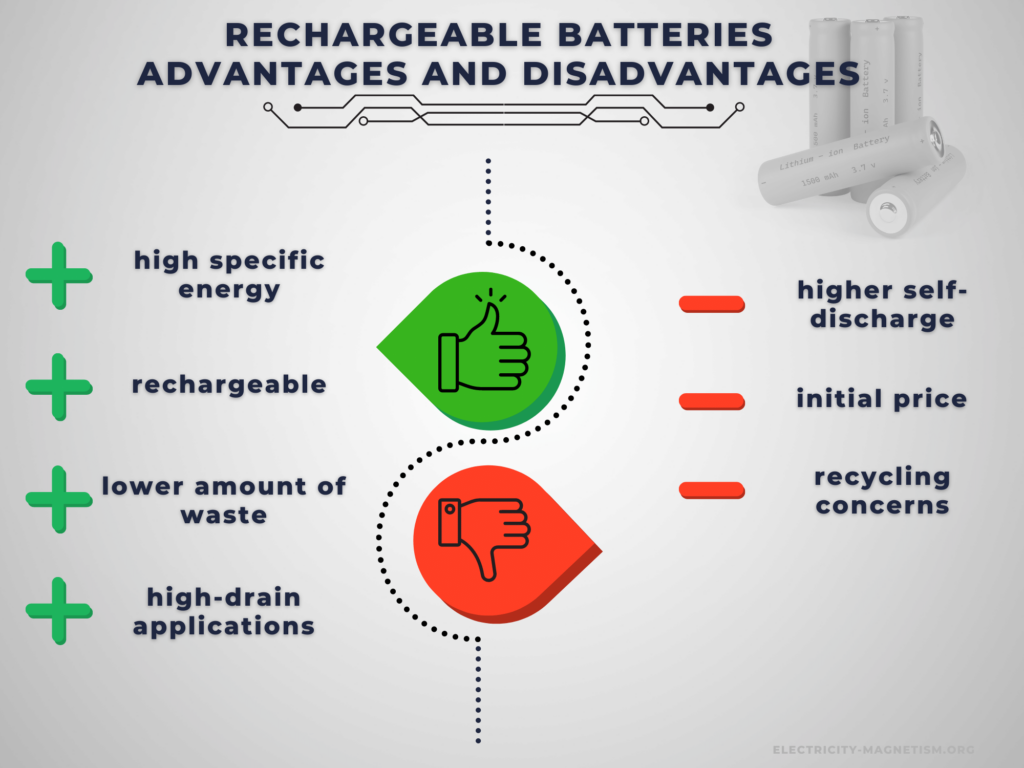Lithium-ion batteries have become an indispensable part of our daily lives, but they have their advantages and disadvantages. Find out more about assets their high energy density, long service life and fast charging, but also the disadvantages related to their high cost, temperature sensitivity and environmental impact.
Lithium batteries: All you need to know!
[arve url="https://www.youtube.com/embed/5bp9xq9Y1ZI "/]
What are the disadvantages of lithium?
Lithium is widely used in rechargeable batteries and is considered an efficient solution for powering electric vehicles and portable electronic devices. However, it also has some important drawbacks.
First of all, lithium is a rare metal, which means that it is not abundant in nature. Its production therefore requires the exploitation of lithium deposits, which can lead to environmental problems such as ecosystem degradation and water and soil pollution.
Moreover, lithium extraction can be costly and energy-intensive. It takes a lot of energy to extract and purify lithium, which has an impact on the industry's overall carbon footprint. Moreover, lithium mines can also cause social problems such as the displacement of local communities and the violation of human rights.
Another disadvantage of lithium is its sensitivity to temperature. Lithium batteries can overheat and even ignite under certain conditions, posing a fire hazard to users. Several incidents involving lithium batteries have been reported in recent years, leading to product recalls and safety concerns.
Finally, lithium recycling also poses challenges. Recycling techniques for lithium-ion batteries are not yet fully developed, which means that most lithium batteries used end up in landfills or incinerators, contributing to environmental pollution.
It is therefore essential to take these disadvantages of lithium into account when assessing its use, by seeking more sustainable alternatives and encouraging the development of more advanced recycling technologies.
What are the advantages of a lithium battery?
The advantages of a lithium battery are numerous:
1. Longer range : Lithium batteries offer greater autonomy than other battery types. This means that devices can operate for longer before needing to be recharged.
2. Lightweight : Lithium batteries are much lighter than other battery types. This makes portable devices easier to transport and reduces the load on electric vehicles, improving their energy efficiency.
3. Shorter charging time : Lithium batteries recharge faster than other types. This allows users to save time by recharging their devices more quickly.
4. Long service life : Lithium batteries have a longer service life than other battery types. They retain their energy storage capacity over many charges and discharges, making them an economical long-term choice.
5. Consistent performance : Lithium batteries offer a constant voltage during discharge, ensuring consistent performance throughout use.
6. More environmentally friendly : Compared with lead-acid batteries, lithium batteries are more environmentally friendly, as they do not contain harmful heavy metals such as lead and cadmium.
7. Wide range of applications : Lithium batteries are used in a wide range of applications, such as cell phones, laptops, electric vehicles, solar and wind energy storage systems, and more.
In conclusion, lithium batteries offer numerous advantages, making them the preferred choice for many applications. Their greater autonomy, lighter weight, shorter charging time, long life, consistent performance, environmental friendliness and wide range of applications make them an essential technology in our daily lives.
What's the difference between Li-Ion and lithium?
Li-ion and lithium are two terms linked to battery technology.
Visit lithium is a naturally occurring chemical element used in the manufacture of rechargeable batteries. It is light, has a high energy capacity and a long service life.
The batteries Li-ion (or lithium-ion) batteries are a specific type of rechargeable battery that uses lithium as the active material in its electrodes. They are commonly used in electronic devices such as cell phones, laptops and electric cars, thanks to their high energy density and low self-discharge rate.
In short, the term lithium refers to the chemical element itself, while Li-ion refers specifically to rechargeable batteries using lithium as the active material.
What is the advantage of a lithium battery over a lead-acid battery?
A lithium battery has several advantages over a lead-acid battery:
1. Greater energy storage capacity: Lithium batteries have a higher energy density than lead-acid batteries, which means they can store more energy in a smaller space.
2. Lighter and more compact: Lithium batteries are generally lighter and more compact than lead batteries, making them ideal for use in portable devices such as cell phones or laptops.
3. Longer service life : Lithium batteries last longer than lead-acid batteries, which means they need replacing less often. This reduces long-term costs.
4. Faster charging : Lithium batteries recharge faster than lead-acid batteries, allowing users to enjoy their devices more quickly.
5. Less impact on the environment: Lithium batteries are considered more environmentally friendly than lead batteries, as they contain fewer harmful substances and can be recycled more easily.
Because of these advantages, lithium batteries are increasingly used in a variety of applications, including electric vehicles, solar energy storage systems, power tools and more.
In conclusion, li-ion batteries offer many advantages benefits making it a popular choice for many applications. Its high energy density, long life and ability to recharge quickly make it an attractive option for portable electronic devices such as smartphones and laptops.
However, it is important to note certain disadvantages of the li-ion battery. Firstly, they are sensitive to heat and can catch fire if misused or damaged. What's more, their manufacturing cost is relatively high, which can be reflected in the price of end products.
Despite these drawbacks, there's no denying that the li-ion battery has revolutionized the battery industry, offering better performance than previous technologies. It continues to evolve and improve, offering promising prospects for the future of portable energy.
All in allli-ion batteries offer a practical and efficient solution for powering our electronic devices, but it's important to consider their limitations and use them with care to maximize their lifespan and minimize potential risks.








